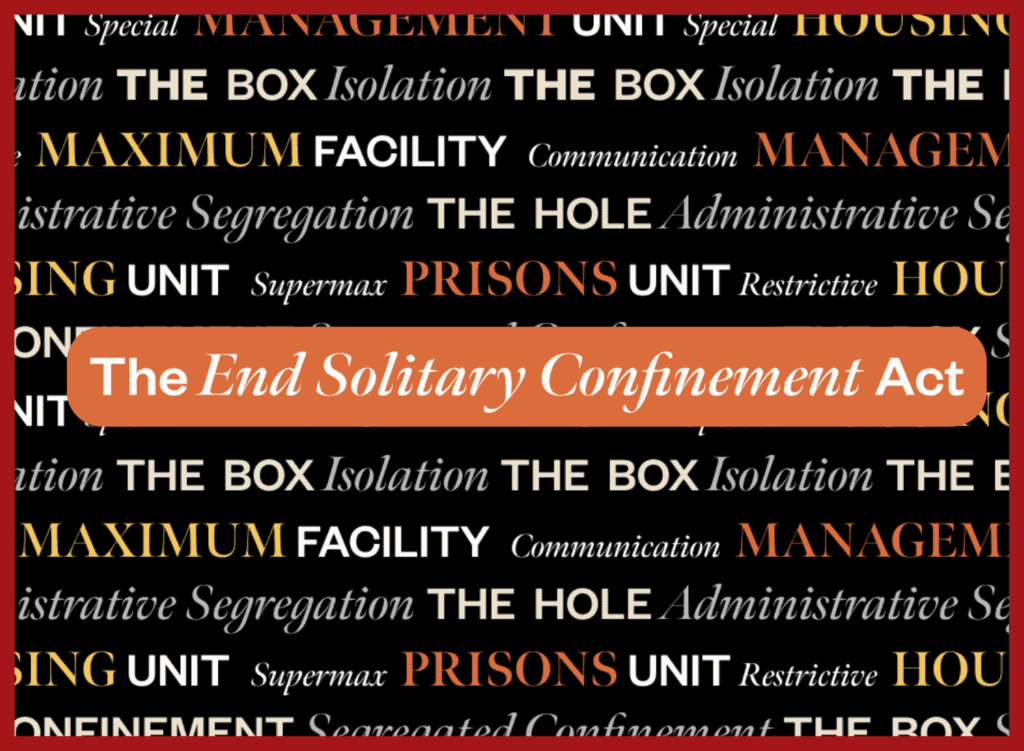U.S. Senators Markey, Warren, Sanders, and Welch Introduce End Solitary Confinement Act in the U.S. Senate, Joining the House and Building on Growing Momentum to End Solitary at the Federal Level
With Over 122,000 People in Solitary in U.S. Prisons, Jails, and Detention Centers, including 11,400 in Federal Prisons, National Experts Urge the U.S. Congress and President Biden to Fulfill His Pledge to End This Torturous Practice
(Washington, D.C.) – Yesterday, U.S. Senators Ed Markey, Elizabeth Warren, Bernie Sanders, and Peter Welch introduced the End Solitary Confinement Act (text here, summary here, companion legislation to HR 4972), which would end solitary confinement in all federal custody and incentivize states and localities to do the same. Joining their House of Representatives colleagues, the Senate bill’s introduction demonstrates the growing national momentum behind ending solitary confinement at the federal level, and is in line with pledges made by President Biden and Vice President Harris to end solitary.
Recent polling shows widespread, bipartisan public support for banning solitary, including the specific requirements of this Act, and a growing number of jurisdictions around the country are introducing legislation to end or limit solitary. The End Solitary Confinement Act draws from these best practices and policies to ban solitary beyond a maximum of four hours for emergency de-escalation, require alternatives with access to 14 hours of daily out-of-cell group engagement, and expand due process rights, oversight, and legal enforcement.
Over 175 organizations nationwide have already endorsed the End Solitary Confinement Act, including the NAACP, ACLU, the Advancement Project, LatinoJustice PRLDEF, Southern Center for Human Rights, National Disability Rights Network, and the Vera Institute, alongside leading human rights and racial justice experts, including members of the Federal Anti-Solitary Taskforce (FAST), These organizations are urging Congress and the President to act now to fulfill the President’s pledge to end solitary.
Evidence has long shown solitary causes devastating and deadly harm, worsens safety for everyone, and is inflicted disproportionately on Black people, Latina/o/x people, Native people, other people of color, and LGBTQ people. Yet, prisons, jails, and detention centers continue to daily lock over 122,000 people in solitary, including 11,400 people in federal prisons alone. While President Biden pledged to end solitary, while Bureau of Prisons Director Colette Peters reiterated the harms of solitary and the need to replace it with alternatives involving out-of-cell programs and human engagement, and while Attorney General Merrick Garland investigated its use, the number of people in solitary in federal prisons is still higher now than at the time of the President’s May 25, 2022 Executive Order calling for reductions in solitary.
Johnny Perez, Director, U.S. Prisons Program, National Religious Campaign Against Torture, said: “The End Solitary Confinement Act won’t just help over 11,000 people being held in extreme isolation in our federal prison system. It could also trigger other much-needed changes to the criminal legal system — and society as a whole. As one who spent three years in solitary confinement, I can say without a doubt that nothing in my life can compare to the psychological and physical toll solitary took on me”
“Being forced into a small, concrete cell without windows for hours, days, weeks, and even months on end isn’t rehabilitation, it’s cruelty,” said Senator Markey. “Solitary confinement is unjust and inhumane torture that disproportionately targets our nation’s most vulnerable groups. I am proud to introduce legislation in the Senate that gets us closer to ending solitary confinement once and for all.”
“Solitary confinement is a heinous and immoral practice that leaves lasting trauma on those subjected to it, disproportionately Black, brown and other vulnerable communities,” said Congresswoman Bush. “It is past time we as a country refuse to allow this horrific form of torture to continue. I look forward to working with Senator Markey on this groundbreaking, bicameral legislation that would put an end to this practice once and for all.”
Tammie Gregg, Director of the American Civil Liberties Union’s Stop Solitary Campaign, said: “This Actadvances critical reforms that will help eliminate the vestiges of the long-term and often devastating harm of solitary confinement visited upon those who are subjected to this torturous practice, including impacted family members. We applaud our partners in the Senate for their courageous stance in advancing this bill.”
Jessica Sandoval, Director, Unlock the Box Campaign, said: “The End Solitary Confinement Act is a beacon of progress, manifesting the collective commitment to human rights and justice. The introduction and passage of this landmark legislation will dismantle the walls of isolation and torture, and provide a blueprint for states and other jurisdictions to follow in order to fully eliminate this barbaric practice in America.”
CJ Sandley, Staff Attorney, Center for Constitutional Rights, said: “The Center for Constitutional Rights firmly believes solitary confinement is torture. Prisons and immigration detention centers throughout the country use solitary confinement, and the threat of it, to silence dissenters, compel labor, and isolate Black, Brown, and LGBTQ people at disproportionate rates. The End Solitary Confinement Act is a monumental step toward eliminating this abhorrent practice in federal carceral systems, and we celebrate its introduction in the Senate.”
BACKGROUND:
On Nationwide Polling: Nationwide polling data released by Data for Progress shows widespread bipartisan support for the specific provisions banning solitary confinement contained in the End Solitary Confinement Act. Specifically, voters – including 78% of Democrats, 61% of Independents, and 51% of Republicans – support by a +32-point margin: “legislation that would limit solitary confinement to a maximum of 4 hours per day [and] ensure that anyone in solitary confinement receives regular support from medical and mental health staff, and that solitary confinement is used only for emergency situations involving serious physical injury”.
On President Biden’s Unfulfilled Commitment to End Solitary Confinement: President Biden and Vice President Harris pledged to end solitary confinement. President Biden issued an Executive Order on May 25, 2022, directing the Attorney General to report on progress made toward limiting the use of solitary confinement and other forms of restrictive housing within 180 days of the order. Yet, the use of solitary in federal prisons has increased since that executive order.
On Widespread Damage Being Done to People Being Held in Solitary Confinement: Over 122,000 people are locked in solitary confinement on a given day in U.S. prisons and jails, not even including immigration detention and youth detention, and hundreds of thousands of people are subjected to solitary over the course of the year. The federal Bureau of Prisons alone is locking 11,400 people in solitary on a given day, disproportionately Black people, Latinx people, Native people, and other people of color. People are locked in solitary for days, weeks, months, years, and decades.
On the Torturous and Counterproductive Harm of Solitary: Solitary confinement causes self-mutilation, heart disease, anxiety, depression, and psychosis. It makes jails and outside communities less safe. Studies have indicated that people in solitary are seven to 12 times more likely to engage in self-harm, and five to six times more likely to die by suicide, than the rest of the prison or jail population – a population already at high risk of self-harm and death by suicide. Even after release from jail or prison, a study of hundreds of thousands of people released from prison in North Carolina over a 15 year period found that people who had spent time in solitary were significantly more likely to die by suicide and other causes. Research shows that even only one or two days in solitary leads to significantly heightened risk of death by accident, suicide, violence, overdose, and other causes. On the day she died, Layleen Polanco was locked in solitary for only two to three hours. By causing people to deteriorate, solitary makes it more likely, not less, that people will engage in harmful acts, and people who have spent time in solitary are more likely to be rearrested after release.
On the Benefits of Alternatives to Solitary: Best practices in youth and mental health facilities limit isolation to minutes or hours at most. The evidence is clear: what actually works to address violence is the exact opposite of solitary: access to full days of out-of-cell pro-social program-based interventions like the CAPS program in NYC jails, the Merle Cooper Program in NYS, and the RSVP program in San Francisco jails. For example, the RSVP program included people who had carried out acts of assault, sexual assault, other violent acts, and repeated “heinous” acts, and led to a precipitous drop in violence among participants to the point of having zero incidents over a one year period.
On the Growing Momentum for Policies Across the Country to End or Limit Solitary: Recent years have seen a massive increase in the number of jurisdictions across the country introducing or passing legislation to end or restrict solitary confinement. Current legislation pending in New York City jails with veto-proof supermajority support would – similar to the End Solitary Confinement Act – end all solitary confinement beyond four hours immediately following an incident for purposes of emergency de-escalation, and require that all people in the jails, including all people in any alternatives to solitary confinement, have access to at least 14 hours of out-of-cell time with access to out-of-cell group programming and activities. States like New York, Colorado, North Dakota, New Jersey, and Connecticut have all taken steps in recent years aimed at significantly reducing the use of solitary confinement.
Unlock the Box is a coalition of organizations and movement leaders who partner with state and local campaigns across the United States with the common goal of ending the use of solitary confinement for all people. Unlock the Box pursues this goal by
working simultaneously on national, state, and local levels with solitary survivors, family
members, advocates, community and faith groups, legislators, healthcare and corrections experts, and others dedicated to ending state-sponsored torture.




